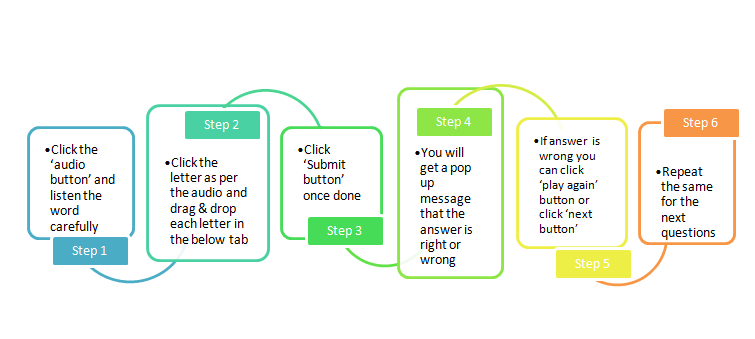

Prefixes
In Sanskrit, prefixes are known as उपसर्गाः. Prefixes change the meaning of a root. Roots are the most basic form of all words in Sanskrit.
There are a total of 22 prefixes in Sanskrit. They are as follows:
प्र,परा,अप,सम्,अनु,अव,निर्,निस्,दुस्,दुर्,वि,आङ्,नि,अधि,अति,अपि,सु,उत्,अभि,प्रति,परि,उप
Examples are as follows:
Ex- आचार्यंप्रणमामि। - “Bowing to my Guru.”
प्रयोगः-use,प्रकारः-type/kind,प्रगति-progress
2. परा - used to show the opposite of something.
Ex- राजाअर्जुनःयुद्धेपराजयते। - “King Arjun loses the war.”
पराक्रमः -bold advance,पराजयते-defeat
3. अप - used in a negative shade or to tell that something is far away.
Ex- मानवःअपगच्छति। - “The child is going away.”
अपहरणम्-seize/take,अपमानः-insult,अपशब्दः-harsh words
4. सम् - used to show being together or togetherness.
Ex- त्रिवेणीसङ्गमेगङ्गायमुनासरस्वतीचसङ्गच्छन्ते।- “Ganga, Yamuna and Saraswati[Rivers] confluence in Triveni Sangam.”
संगमः-going together,संस्कृतः-refined
5. अनु - used to show following something or someone.
Ex- बालिकायाःक्रियाःअनुकारोति। - “The monkey is repeating/imitating the girl’s actions.”
अन्वेषणः-investigation,अनुवादः-translation अनुशासनः-ordering
6. अव - usedto indicate down.
Ex- शिवस्यशिखायाःगङ्गाअवतरति। “Ganga Flows from the hair of Shiva.”
7. निर् - used for showing that something is far.
Ex- - सन्तोषःनिर्गच्छति। - “Santhosh is going away.”
निर्गच्छति -to go out
8. निस् - used in the sense of out.
Ex-मार्जारःगृहात्निस्सरति। “Cat is coming out of the house.”
9. दुस् - used to indicate a negative meaning.
Ex- अस्माभिःनदुष्करणीयम्।- “We mustn’t do bad deeds.”
10. दुर् - used to indicate hardness or difficulty.
Ex- दुर्योधनःदुर्जयः - “Duryodhana is invincible”
दुर्गच्छति -to lead the difficult path
11. वि - to show opposition to a meaning
Ex- विदेशः -This means, ‘foreign land’
विस्मरति-to forget,विराजते-to shine better,विजानानि-to know better
12. आङ् - to indicate opposite meaning or from and till.
Ex-The word ‘आजन्म‘means from birth.
पिताकार्यालयात्गृहम्आगच्छत्।
13. नि - used in the sense ‘down’.
Ex- वृक्षात्फलंनिपतति -The fruit falls from the tree.
नियमः-rule,निवेदनम्-request
14. अधि - used in the sense, ‘above’.
Ex- The word ‘अध्यात्मा’means the supreme soul.
अधिकारः-authority
15. अति - to show the excess of something.
Ex- The word ‘अतिवाद’ means a fight or an argument.
अतिक्रमणः-stepping beyond, अतिमानव-superman
16. अपि- used in the sense,‘also’.
Ex- सःअपिभोजनालयःगच्छति।
17. सु - to express a positive tone in the word.
Ex- The word ‘सुकृत्’
साममसुहृत्इतिकथ्यते।
18. उत् - used in the sense ‘up’ or ‘above’.
Ex- कपिलःसर्वत्रउत्पतति -The monkey is jumping everywhere.
रामःपञ्चवादनेउत्तिष्ठति।
उद्गच्छति-to go upward
19. अभि- used in the sense ‘towards’.
Ex- बालिकावृक्षंअभिगच्छति -The girl is going towards the tree.
अभ्यागत-guest/visitor,अभिमानः-arrogance
20. प्रति - the sense similar to the prefix ‘अभि’.
Ex-शिक्षकःप्रश्नंपृष्टवाछात्रःप्रत्युत्तरति- The teacher asks the question to the student, they answer him.
प्रतिक्रियः-reaction,प्रतिबिंबः -reflection
21. परि - used in the sense ‘around’.
Ex- The word ‘परिवर्तनम्’-translation
परिवर्तनंकरोति।
परिभाषा-description
22. उप - used in the sense ‘towards’.
Ex-“सज्जनःसर्वान्उपकरोति”-The devoted person helps everyone.
उपग्रहः-satellite,उपयोगः-use,उपकारः-help
Let’s practice with Little Guru.
HOW TO PLAY
